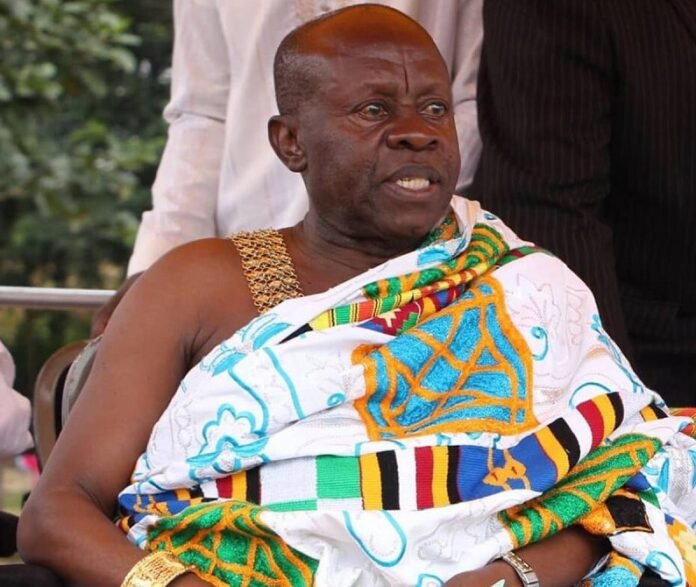
The National House of Chiefs says it will soon set guidelines for Chiefs to supervise their engagement with political actors following the Supreme Court judgment declaring as unconstitutional endorsement of political parties and candidates by traditional rulers.
President of the National House of Chiefs, Ogyeahoho Yaw Gyebi II, says though they are satisfied with the court’s judgement they will soon meet to set guidelines to ensure compliance.
“I’m happy that the Supreme Court in a unanimous decision has come out to say that Nananom can criticize, of course if my road is not good and you come, I will tell you my friend you have neglected me and my people. If you are also doing very well, why not, the chief should be able to say it. But where the Chief wears a party paraphernalia, where the chief stands on a political platform, where the chief invites politicians to the palace to discuss party political activities, that one to me will be direct involvement in partisan politics. That one, when Nananom meet Mid June or third week of June we are going to discuss all these things and emphasize that Nananom should be very careful. But we are happy that if a government is doing very well we should be able to praise the government. If the government is not doing well, we should be able to draw its attention to it and that does not constitute partisan politics,” Ogyeahoho Yaw Gyebi II said in an interview on Morning Starr on Starr FM Monday.
The Supreme Court has in a unanimous decision declared that it is unconstitutional for chiefs to endorse candidates or their party.
The court, however, pointed out that chiefs praising or lauding the policy of a candidate is a permissible endorsement.
Justice Emmanuel Yonny Kulendi who authored the November 2022 Judgment of the court, explains that this conclusion is “consistent with the role of a Chief as a champion and an advocate for the welfare and interests of their communities”.
He nonetheless, stated that other statements where a Chief is heard to endorse the person of the candidate or his party by declaring their preferential support for the election of the candidate or his party or urging voters to vote for them are the kind of “taking sides” in a partisan political contest which the constitution disapproves of.
This is the Apex Court’s decision in a case filed by a private citizen Elorm Kwame Gorni against the Attorney General.

